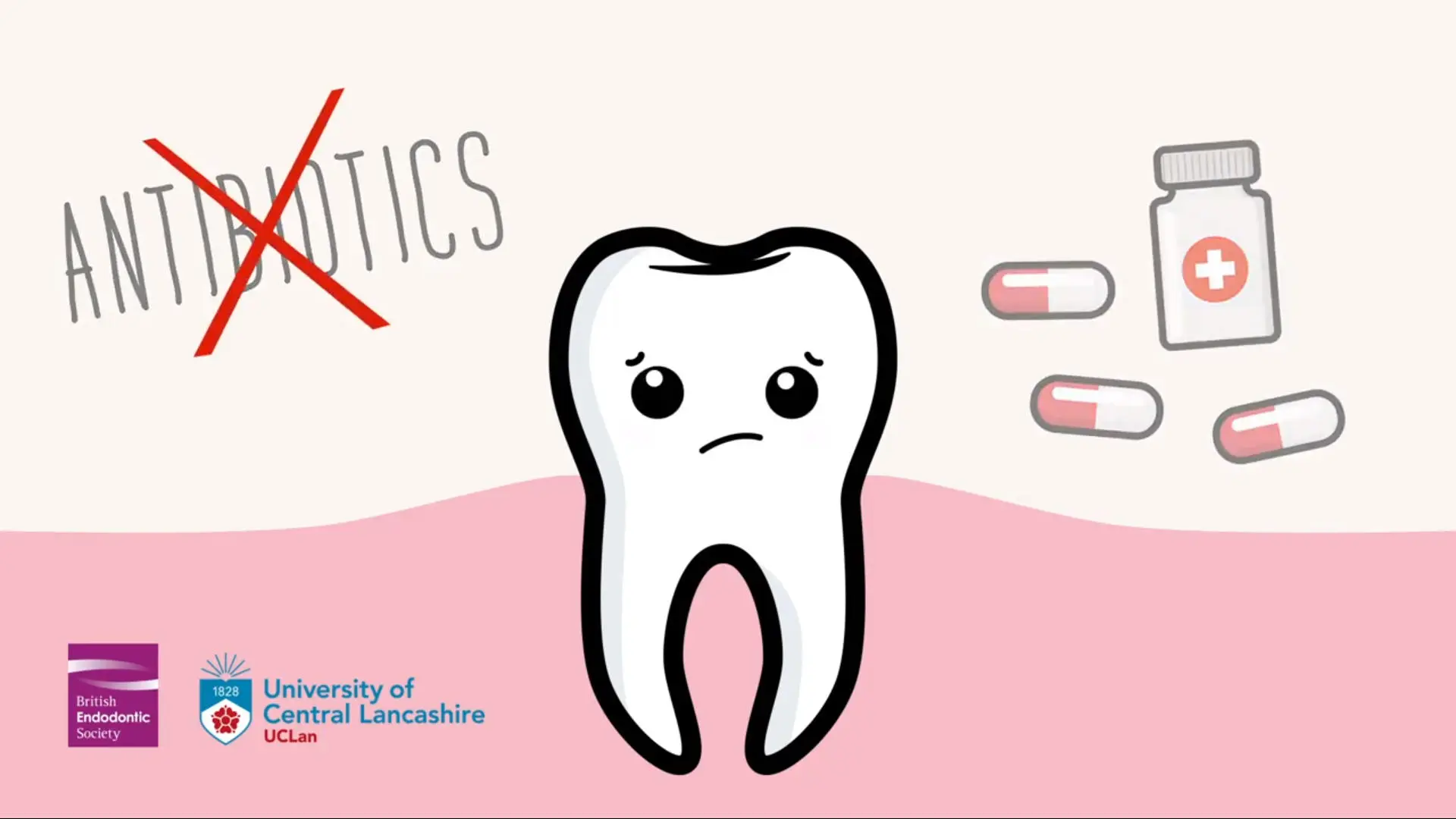University works with British Endodontic Society to produce educational animation as part of World Antimicrobial Awareness Week
The University of Central Lancashire (UCLan) has teamed up with the British Endodontic Society (BES) to warn people about the misuse of antibiotics to treat dental pain as part of World Antimicrobial Awareness Week.
To mark World Antimicrobial Awareness Week, which runs from the 18 to 24 November, UCLan’s School of Dentistry and the BES have produced a video animation to help patients to better understand what their options might be for the most common types of dental pain. The key message is that most causes of dental pain can’t be treated with antibiotics and alternative treatment methods are much more effective.
Nargis Sonde, Clinical Lecturer in Restorative Dentistry at UCLan, said there are many preconceptions that need to be addressed.
"Although dentists make up a small proportion of prescribers in the UK, they contribute to around 10 percent of all antibiotic prescriptions. Most of our first line prescriptions are broad spectrum antibiotics, meaning they work on a wider range of bacteria. In some cases, this will be useful, but the side effects of using them is that more bacteria are likely to become resistant to their effects and eventually no longer work."
— Nargis Sonde, Clinical Lecturer in Restorative Dentistry at UCLan
Nargis Sonde, Clinical Lecturer in Restorative Dentistry at UCLan, said there are many preconceptions that need to be addressed.
“Although dentists make up a small proportion of prescribers in the UK, they contribute to around 10 percent of all antibiotic prescriptions. Most of our first line prescriptions are broad spectrum antibiotics, meaning they work on a wider range of bacteria. In some cases, this will be useful, but the side effects of using them is that more bacteria are likely to become resistant to their effects and eventually no longer work.
“It is important for patients to know that their dentist might decide not to prescribe antibiotics for them and to remember that there will probably be a very good reason for this. We thought a short educational video may help patients to better understand what their options might be.”
The video was produced by the UCLan Innovation Lab, following another successful collaboration with the School of Dentistry to produce an augmented reality (AR) game called BacteriAR. Nominated for a Guardian University Award, the game shares a very similar message around mis-using antibiotics but is aimed at a younger audience.
"Currently drug resistant diseases account for 700,000 deaths a year worldwide and the World Health Organisation estimates this number to increase to 10 million a year by 2050. The problem isn’t going away so we need to act now to do what we can to try and stave of this impending crisis and empower patients to make better healthcare choices."
— Dr Shalini Kanagasingam from the UCLan School of Dentistry
Dr Shalini Kanagasingam from the UCLan School of Dentistry was also involved in the project. She said: “Currently drug resistant diseases account for 700,000 deaths a year worldwide and the World Health Organisation estimates this number to increase to 10 million a year by 2050. The problem isn’t going away so we need to act now to do what we can to try and stave of this impending crisis and empower patients to make better healthcare choices.”
Phil Tomson, Honorary Secretary of the BES, added: “The video’s style makes it patient and family-friendly and we are very keen for it to be shared with patients and within the dental and health communities, so the message reaches as many people as possible.”
The video is available to view on the UCLan YouTube channel.
It was produced by Danny Livingstone, Luke Nelson and David Robinson from the UCLan Innovation Lab, Dr Shalini Kanagasingam and Nargis Sonde from the UCLan School of Dentistry and Phil Tomson from the BES.

